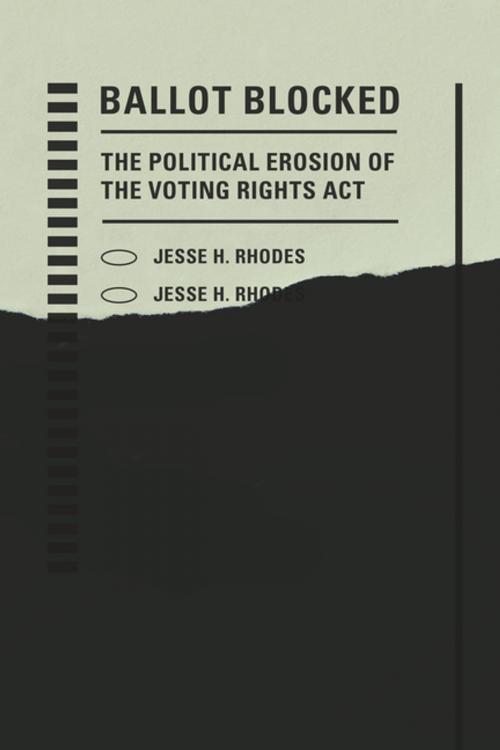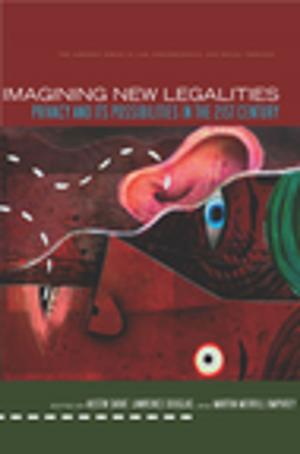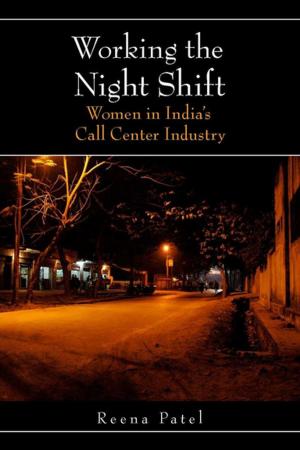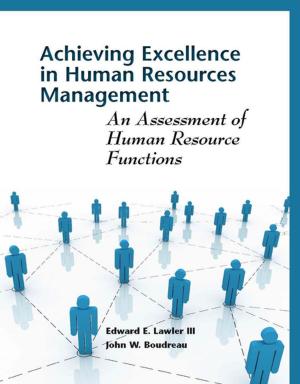Ballot Blocked
The Political Erosion of the Voting Rights Act
Nonfiction, Reference & Language, Law, Civil Rights| Author: | Jesse H. Rhodes | ISBN: | 9781503603530 |
| Publisher: | Stanford University Press | Publication: | September 12, 2017 |
| Imprint: | Stanford University Press | Language: | English |
| Author: | Jesse H. Rhodes |
| ISBN: | 9781503603530 |
| Publisher: | Stanford University Press |
| Publication: | September 12, 2017 |
| Imprint: | Stanford University Press |
| Language: | English |
Voting rights are a perennial topic in American politics. Recent elections and the Supreme Court's decision in Shelby County v. Holder, which struck down key enforcement provisions in the Voting Rights Act (VRA), have only placed further emphasis on the debate over voter disenfranchaisement. Over the past five decades, both Democrats and Republicans in Congress have consistently voted to expand the protections offered to vulnerable voters by the Voting Rights Act. And yet, the administration of the VRA has become more fragmented and judicial interpretation of its terms has become much less generous. Why have Republicans consistently adopted administrative and judicial decisions that undermine legislation they repeatedly endorse?
Ballot Blocked shows how the divergent trajectories of legislation, administration, and judicial interpretation in voting rights policymaking derive largely from efforts by conservative politicians to narrow the scope of federal enforcement while at the same time preserving their public reputations as supporters of racial equality and minority voting rights. Jesse H. Rhodes argues that conservatives adopt a paradoxical strategy in which they acquiesce to expansive voting rights protections in Congress (where decisions are visible and easily traceable) while simultaneously narrowing the scope of federal enforcement via administrative and judicial maneuvers (which are less visible and harder to trace). Over time, the repeated execution of this strategy has enabled a conservative Supreme Court to exercise preponderant influence over the scope of federal enforcement.
Voting rights are a perennial topic in American politics. Recent elections and the Supreme Court's decision in Shelby County v. Holder, which struck down key enforcement provisions in the Voting Rights Act (VRA), have only placed further emphasis on the debate over voter disenfranchaisement. Over the past five decades, both Democrats and Republicans in Congress have consistently voted to expand the protections offered to vulnerable voters by the Voting Rights Act. And yet, the administration of the VRA has become more fragmented and judicial interpretation of its terms has become much less generous. Why have Republicans consistently adopted administrative and judicial decisions that undermine legislation they repeatedly endorse?
Ballot Blocked shows how the divergent trajectories of legislation, administration, and judicial interpretation in voting rights policymaking derive largely from efforts by conservative politicians to narrow the scope of federal enforcement while at the same time preserving their public reputations as supporters of racial equality and minority voting rights. Jesse H. Rhodes argues that conservatives adopt a paradoxical strategy in which they acquiesce to expansive voting rights protections in Congress (where decisions are visible and easily traceable) while simultaneously narrowing the scope of federal enforcement via administrative and judicial maneuvers (which are less visible and harder to trace). Over time, the repeated execution of this strategy has enabled a conservative Supreme Court to exercise preponderant influence over the scope of federal enforcement.















